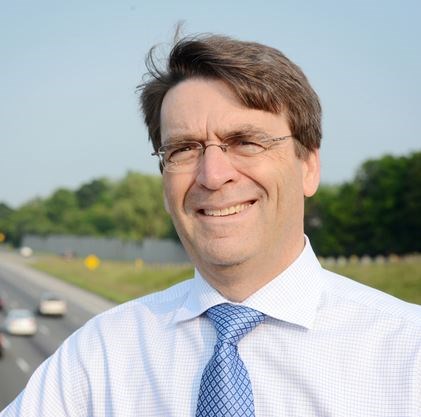Daniel Hoornweg
Dan researches the sustainability of cities; how much energy they use, how much waste they generate, how sustainable overall they are, and where they are likely headed, and how we could help shift them to being much more sustainable. Dan’s research and efforts at applied sustainability span more than 30 years. Dan started his career in the oilfields of Alberta, then served as waste manager in Peel Region, City of Guelph, and Bermuda, and then spent almost twenty years at the World Bank where he served as Lead Advisor on Sustainable Cities. Dan joined the energy systems program at Ontario Tech University in 2012 and received his PhD in Civil Engineering (Sustainable Cities) in 2015.
With more than 1,000 media interviews and invited talks, Dan is often called on to speak to where our communities are today in their efforts to be more sustainable, and where global efforts are leading.
Education
Ph.D., University of Toronto, Civil (Environmental) Engineering
M.A.Sc., University of Guelph, Environmental Engineering
B.Sc., University of Waterloo, Earth Science, Geotech
Career
Leadership Positions
Associate Dean, Ontario Tech, (2019 – 2022)
Lead Urban Specialist (Cities and Climate Change), World Bank, (2007 – 2012)
Board Director (past and present), Waste Diversion Ontario, Clean Air Partnership (Ontario), Georgian Bay Biosphere, Sustainable Communities Foundation (Sweden)
Chair, Durham Region Roundtable on Climate Change (2018 – 2022)
Solid Waste Manager, Government of Bermuda, City of Guelph, Region of Peel
Launched (co-owner) For Earth’s Sake in Guelph (1987), Canada’s first retail store to sell exclusively environmentally friendlier products
Academic Positions
Associate Professor and Richard Marceau Research Chair, Ontario Tech University (2012 – present)
Adjunct Professor, Civil Engineering, University of Toronto (2012 – present)
Senior Fellow, Global Cities Institute Facility, University of Toronto
Senior Fellow, Transition Accelerator, University of Calgary
Selected Publications
Hoornweg, D and K. Pope. Cities – Growing Threats, Growing Opportunities, In Megacities and Megacity-Regions, Eds, D. Labbe and A. Sorensen. 2020. Edward Elgar Publishing
Hoornweg, D., Lougheed, S., Walker, M. et al. Food waste management, treatment and disposal options: a review and future considerations. In: Reynolds, C., et al (eds.) Routledge Handbook of Food Waste. 2020. Routledge (Taylor & Francis).
Hoornweg, D. (Editor). Letters to a Young Engineer. 2014-23
Hoornweg, D., N. Ibrahim and C. Luo. Engineering Education in the Anthropocene. World Watch – State of the World 2017, Education in the Anthropocene.
Hoornweg, D. Cities and Sustainability: A New Approach. Routledge, 2016.
Bhada-Tata, P. and D Hoornweg. Solid Waste and Climate Change. World Watch –
State of the World 2016, Can a City Be Sustainable?
Dickson, E., J. Baker and D. Hoornweg. 2012. Urban Risk Assessment: Toward a Common Approach. Urban Development Series. World Bank.
Hoornweg, D. – contributing author (Chapters 1 and 4). 2011. Sustainable Low-Carbon City Development in China. World Bank.
Hilts, S.G. and A. Fuller, Editors. The Guelph Seminars on Sustainable Development (1990). Seminar 6.2, D. Hoornweg, Sustainable Development: Implications for Guelph.
Hoornweg, D. Lead Author, City of Guelph Green Plan. 1989 (first in Canada)
C. Luo, ID Posen, D. Hoornweg, HL MacLean Modelling future patterns of urbanization, residential energy use and greenhouse gas emissions in Dar es Salaam with the Shared Socio-Economic Pathways, Journal of Cleaner Production, May, 2020
McPherson, M., M. Ismail, D. Hoornweg, M. Metcalfe. Planning for variable renewable energy and electric vehicle integration under varying degrees of decentralization: the Lusaka, Zambia case study. (2018) Energy, Vol 151, 332-346
Hoornweg, D., Hosseini, M., Kennedy, C., Behdadi, A. An urban approach to planetary boundaries. Ambio, 2016, Volume 45, Issue 5, pp 567–580.
Kennedy, C., N. Ibrahim, D. Hoornweg. Low-carbon infrastructure strategies for cities. 2014 Nature Climate Change. Vol 4, 343-346.
Hoornweg, D., K. Sierra, M. Sanio, K. Pressnail. Meeting the Infrastructure Challenges of African Cities. 2014 American Society of Civil Engineers.
Hoornweg, D., P. Bhada-Tata, C. Kennedy. Peak Waste: When Is It Likely to Occur? Jour of Industrial Ecol. Jul 2014.
Hoornweg, D, P Bhada-Tata and C. Kennedy. Waste Must Peak This Century. Nature, Oct. 2013.
Hoornweg, D. and P. Bhada-Tata. 2012. What a Waste: A Global Review of Solid Waste Management. Urban Development Series Knowledge Paper. World Bank.
Kennedy, C. and D. Hoornweg. 2012. Mainstreaming Urban Metabolism. Journal of Industrial Ecology.
Ibrahim, N., L Sugar, D Hoornweg, C Kennedy. Greenhouse gas emissions from cities: comparison of international inventory frameworks. Local Environment 17 (2), 2012
Hoornweg, D. A Sustainability Assessment of the Great Lakes Megaregion. For Council of the Great Lakes Region, 2020.
Hoornweg, D. What Makes a City Resilient? Corporate Knights magazine, June 2015.
